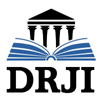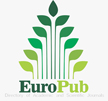THE EFFECTIVENESS OF THE GUIDANCE PROCESS THESIS ONLINE UPI MECHANICAL ENGINEERING EDUCATION STUDENTS DURING THE COVID-19
Abstract
Indonesia is one of the countries that has been affected by the Covid-19 virus. The Covid-19 pandemic has disrupted the education sector in Indonesia, resulting in the government changing the learning system, which is usually face-to-face, now into long-distance through an online learning system. So seeing a situation like this requires information about the effectiveness of the online learning process during the Covid-19 pandemic. Not only is the learning process online, but the TA guidance process must also be online. This study aims to determine aspects of the online TA guidance process, namely the behavior of lecturers, media guidance, time utilization, and student behavior. The research method used is descriptive quantitative method and the data were obtained through a survey. The subjects of this study were students of 2016 and 2017 at PTM who experienced an online TA guidance process during the Covid-19 pandemic. The research sample was 117 students. The results of this study are, the online TA guidance process of PTM students is quite effective, including aspects of lecturer behavior and aspects of guidance media, while aspects of time utilization and aspects of student behavior are in the ineffective category.
Keywords
Full Text:
PDFReferences
Astuti, T. P., & Hartati, S. (2013). Dukungan sosial pada mahasiswa yang sedang menyusun skripsi (studi fenomenologis pada mahasiswa Fakultas Psikologi UNDIP). Jurnal psikologi, 12(1), 1-13.
Balwant, P. T. (2018). The meaning of student engagement and disengagement in the classroom context: Lessons from organisational behaviour. Journal of further and higher education, 42(3), 389-401.
Fadhilah, A. R., Fitri, R. R., & Wibowo, Y. S. (2021). Distance education di masa covid-19: tinjauan terhadap sistem, kebijakan, dan tantangan e-education di sekolah. Jurnal Akuntabilitas Manajemen Pendidikan, 9(2), 171-188.
Fathoni, A. (2019). Dampak covic 19 dan kebijakan psbb pemerintah terhadap UMKM di Wiyung Surabaya. Dinar: Jurnal Prodi Ekonomi Syariah, 3(1), 30-69.
Ferri, F., Grifoni, P., & Guzzo, T. (2020). Online learning and emergency remote teaching: Opportunities and challenges in emergency situations. Societies, 10(4), 1-18.
Firman dan Rahman (2020). Pembelajaran online di tengah pandemi covid-19. Indonesian Journal of Educational Science (IJES), 2(2), 81-89.
Fitriyani, Y., Fauzi, I., & Sari, M. Z. (2020). Motivasi belajar mahasiswa pada pembelajaran daring selama pandemik covid-19. Jurnal Kependidikan: Jurnal Hasil Penelitian dan Kajian Kepustakaan di Bidang Pendidikan, Pengajaran dan Pembelajaran, 6(2), 165-175.
Hariyati, R. M. (2012) Survey kinerja dosen pembimbing skripsi dan kualitas skripsi mahasiswa akuntansi STIE Malangkucecwara. JDA-Jurnal Dinamika Akuntansi, 4(2), 121-128.
Hutauruk, A., & Sidabutar, R. (2020). Kendala pembelajaran daring selama masa pandemi di kalangan mahasiswa pendidikan matematika : Kajian kualitatif deskriptif. Journal of Mathematics Education and Applied, 2(1), 45–51.
Kintama, A. Y., Larasati, D. A., & Yuliana, L. (2021). Bimbingan skripsi daring selama pademi covid-19 pada mahasiswa PGSD UWKS: Hambatan dan solusi. Trapsila: Jurnal Pendidikan Dasar, 3(1), 57-71.
Maulana, Y., Ariyani, H., & Rosidawati, I. (2021). Literatur review pengaruh pemberian kompres hangat terhadap penurunan suhu tubuh anak dengan febris. Jurnal Mitra Kencana Keperawatan Dan Kebidanan, 5(2), 68-76.
Riansyah, A., Budisusila, E. N., & Ilhamzah, R. (2017). Penerapan sistem informasi monitoring tugas akhir untuk memantau perkembangan tugas akhir mahasiswa Universitas Islam Sultan Agung. Jurnal Transistor Elektro dan Informatika (TRANSISTOR EI), 2(2), 101-110.
Ridwan, M., Suhar, A. M., Ulum, B., & Muhammad, F. (2021). Pentingnya penerapan literature review pada penelitian ilmiah. Jurnal Masohi, 2(1), 42-51.
Rony, H. A. Z., & Awal, S. T. (2019). University teachers’ training on online teaching-learning using online platform during COVID-19: A case study. Bangladesh Education Journal, 18(2), 57-64.
Rosyad, Y. S., Rias, Y. A., Sitohang, T. R., Fembi, P. N., Surahmat, R., & Desriva, N. (2019). Validitas dan Reliabilitas Kusioner Pengetahuan, Sikap, dan Tindakan Terhadap Covid-19. Jurnal Media Keperawatan: Politeknik Kesehatan Makassar, 10(2), 75-79.
Sadikin & Hamidah. (2020). “Pembelajaran daring di tengah wabah covid-19.” Jurnal Ilmiah Pendidikan Biologi, 6(2), 214–224.
Saputra, R. (2019). Pola komunikasi dosen dan mahasiswa dalam bimbingan skripsi. Jurnal Ilmu Sosial dan Ilmu Politik (JISIP), 7(2), 1-17.
Sheko, A., & Braimllari, A. (2018). Information technology inhibitors and information quality in supply chain management: A PLS-SEM analysis. Academic Journal of Interdisciplinary Studies, 7(3), 125-138.
Wahyuni, S. (2013). Hubungan antara kepercayaan diri dengan kecemasan berbicara di depan umum pada mahasiswa psikologi. Psikoborneo: Jurnal Ilmiah Psikologi, 1(4), 220-227.
Yudhana, A. S. L., & Kusuma, W. A. (2021). Kelebihan dan kekurangan pembelajaran jarak jauh atau e-learning dan learning management system (LMS) menggunakan pendekatan literature review, dan user persona. Jurnal Syntax Admiration, 2(9), 1617-1628.
DOI: https://doi.org/10.17509/jmee.v8i1.35495
Refbacks
- There are currently no refbacks.
Copyright (c) 2021 Journal of Mechanical Engineering Education

This work is licensed under a Creative Commons Attribution-ShareAlike 4.0 International License.
Indexed by:
ISSN: P 2356-4997
View My Stats
 Journal of Mechanical Engineering Education (Jurnal Pendidikan Teknik Mesin)
Journal of Mechanical Engineering Education (Jurnal Pendidikan Teknik Mesin)








